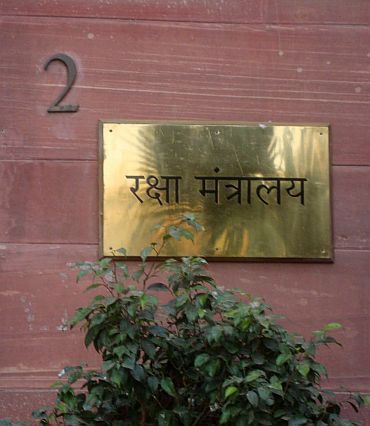 Foreign defence firms can now appoint 'agents' to market their products to the armed forces and the government but with strict oversight which includes opening up of company's books to scrutiny besides not allowing any success bonus or penalty fees among other measures.
Foreign defence firms can now appoint 'agents' to market their products to the armed forces and the government but with strict oversight which includes opening up of company's books to scrutiny besides not allowing any success bonus or penalty fees among other measures.
The government will also have the veto power to reject or accept, at any point of time, an agent proposed by the company.
The new set of guidelines are now part of the Defence Procurement Procedure (DPP), 2016 that was put out in public last week as the government works on ensuring transparency in the murky world of defence deals.
While previous DPPs also had a window for foreign companies to hire agents, it is for the first time that a detailed set of guidelines has come out.
The previous mechanisms had failed to ensure transparency even though defence agents continued to play crucial roles in defence contracts.
Defence Minister Manohar Parrikar said, "There will be scope for a company to appoint an agent to represent it or to get over technical difficulties by paying him or her reasonable fees which will have to be mentioned upfront."
As per the new guidelines, the vendor is required to disclose full details of any such person, party, firm or institution engaged by them for marketing of their equipment in India, either on a country specific basis or as a part of a global or regional arrangement.
These details should include the scope of work and responsibilities that have been entrusted with the said party in India.
If there is non-involvement of any such party then the same also be communicated in the offers specifically. According to the new conditions imposed, the contract with the agent will not be a conditional contract wherein payment made or penalty levied is based, directly or indirectly, on success or failure of the award of the contract.
On demand, the vendor shall provide necessary inputs, inspection of the relevant financial documents, information, including a copy of the contract(s) and details of payment terms between the vendor and the agent engaged by him.
The guidelines also says that details of all agents will be disclosed at the time of submission of offers and within two weeks of engagement of an agent at any subsequent stage of procurement.
The vendor is required to disclose termination of the agreement with the agent, within two weeks of the agreement having been terminated.
The defence ministry reserves the right to inform the vendor at any stage that the agent so engaged is not acceptable whereupon it would be incumbent on the vendor either to interact with the Ministry directly or engage another agent.
The decision of MoD on rejection of the agent shall be final and be effective immediately, it said.
All payments made to the agent 12 months prior to tender submission would be disclosed at the time of tender submission and thereafter an annual report of payments would be submitted during the procurement process or upon demand of the MoD.
"The agent will not be engaged to manipulate or in any way to recommend to any functionaries of the Government of India, whether officially or unofficially, the award of the contract to the seller or to indulge in corrupt and unethical practices," it said.
Parrikar had agreed that there is already a provision for agents legally but said, "In short, agent word was there but without clearly defining what his role would be. It was not very well defined. That is being defined properly".











 © 2025
© 2025